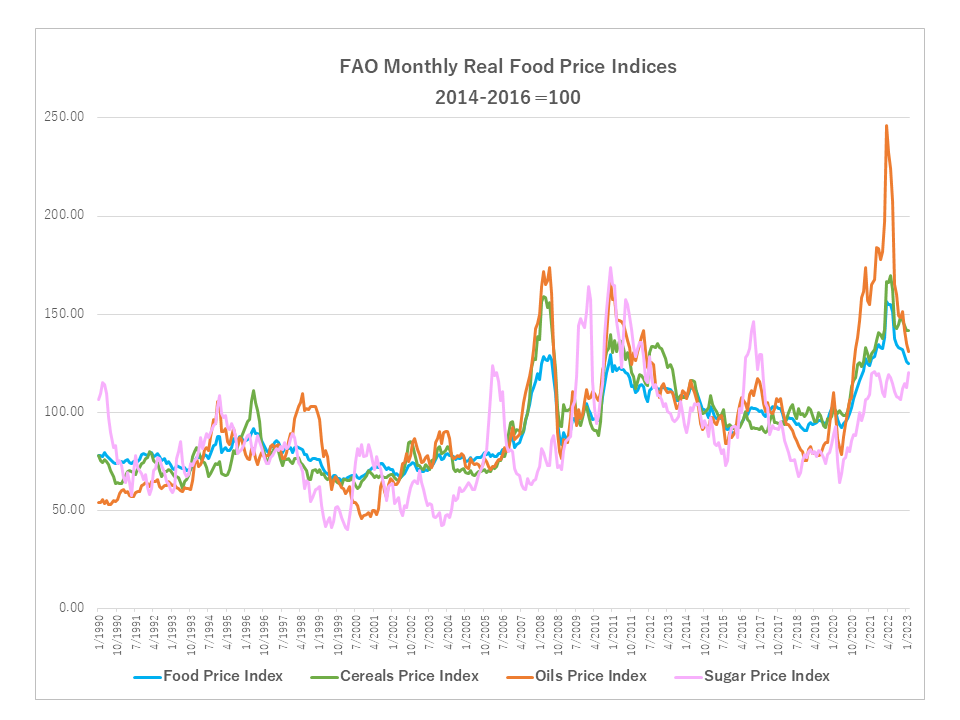Pick Up
730. February 2023 World Food Price Index

730. February 2023 World Food Price Index
On March 3, the UN Food and Agriculture Organization (FAO) released its World Food Price Index, which averaged 129.8 points in February 2023, marking the 11th consecutive monthly decline, albeit only 0.6% from the previous month, and 29.9 points (18.7%) below the high reached in March 2022. The February decline reflected lower prices for vegetable oils, dairy products, and partially lower prices for cereals and meat, which offset a sharp rise in the sugar price index.
Cereal prices were at 147.3 points in February, which is negligible (0.1%) higher than in January and 2.0 points (1.4%) higher than in February of last year. International wheat prices rose slightly (0.3%) from the previous month, as drought concerns in key producing regions in the US and strong demand for Australian wheat, coupled with intense competition among exporting countries, helped to keep prices from rising. For maize, weak demand for maize in the US limited international price increases to 0.1%, despite deteriorating production conditions in Argentina and planting delays in Brazil. International rice prices fell 1.0% on a monthly basis due to slowing trade in major Asian exporting countries and a decline in the value of their currencies against the US dollar. In particular, the baht, which had reached a 10-month high in Thailand, weakened against the currency, leading to a reversal in Thai rice prices.
The vegetable oil price index fell 4.5 points (3.2%) from the previous month to 135.9 points in February, the lowest level since early 2021. This downward trend appears to reflect cooling international demand for palm, soybean, sunflower, and rapeseed oil.
In contrast, the sugar price index rose 8.1 points (6.9%) from January to 124.9 points, the highest since February 2017. The February price increase reflects a downward revision to sugar production forecasts in India relative to global demand. On the other hand, news about the expected harvest in Thailand and ample rainfall in Brazilian production areas did not lead to a significant price increase. Declines in international oil prices and Brazilian ethanol prices also helped to limit the rise in world sugar prices.
Contributor: IIYAMA Miyuki (Information Program)
